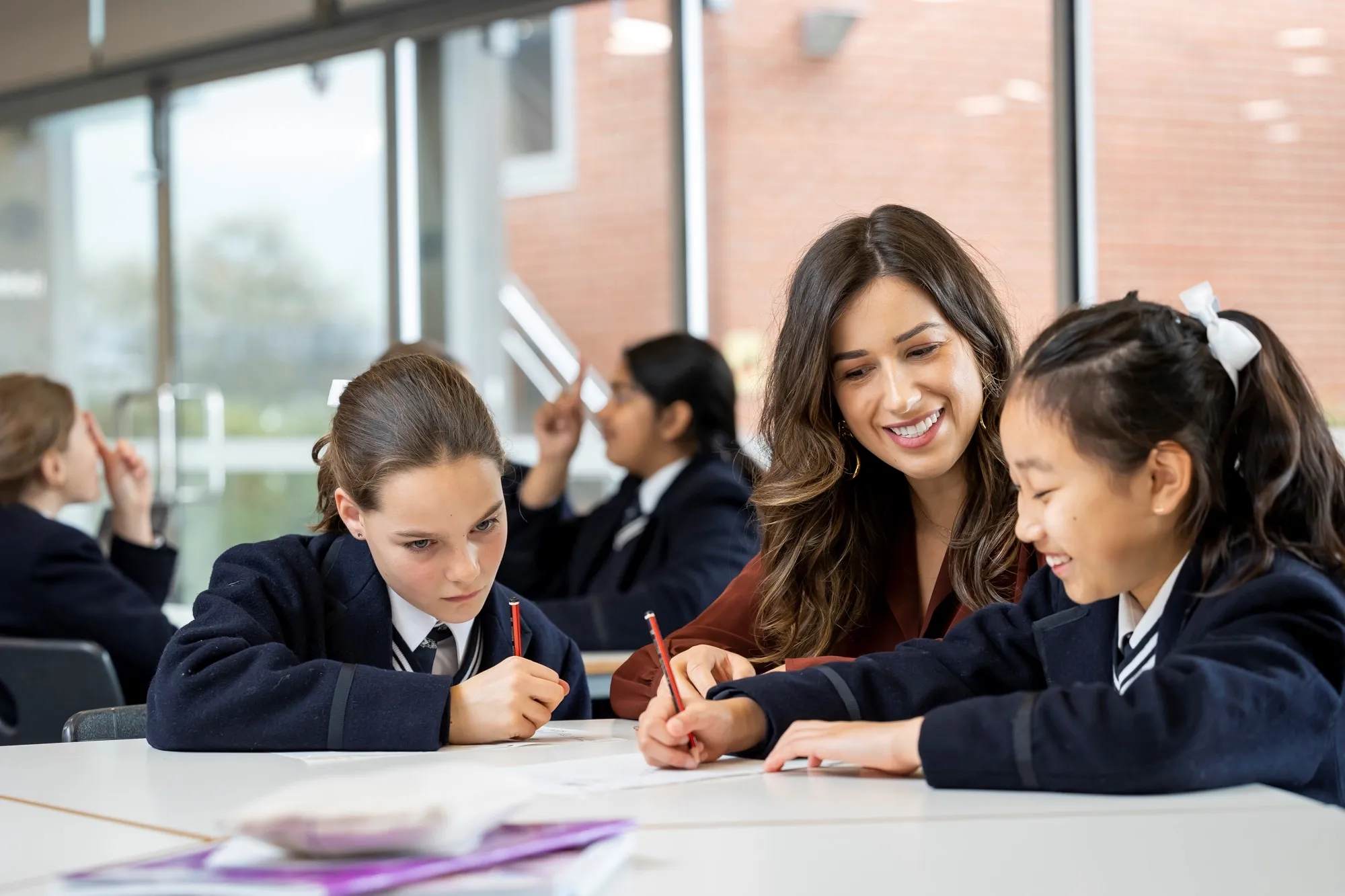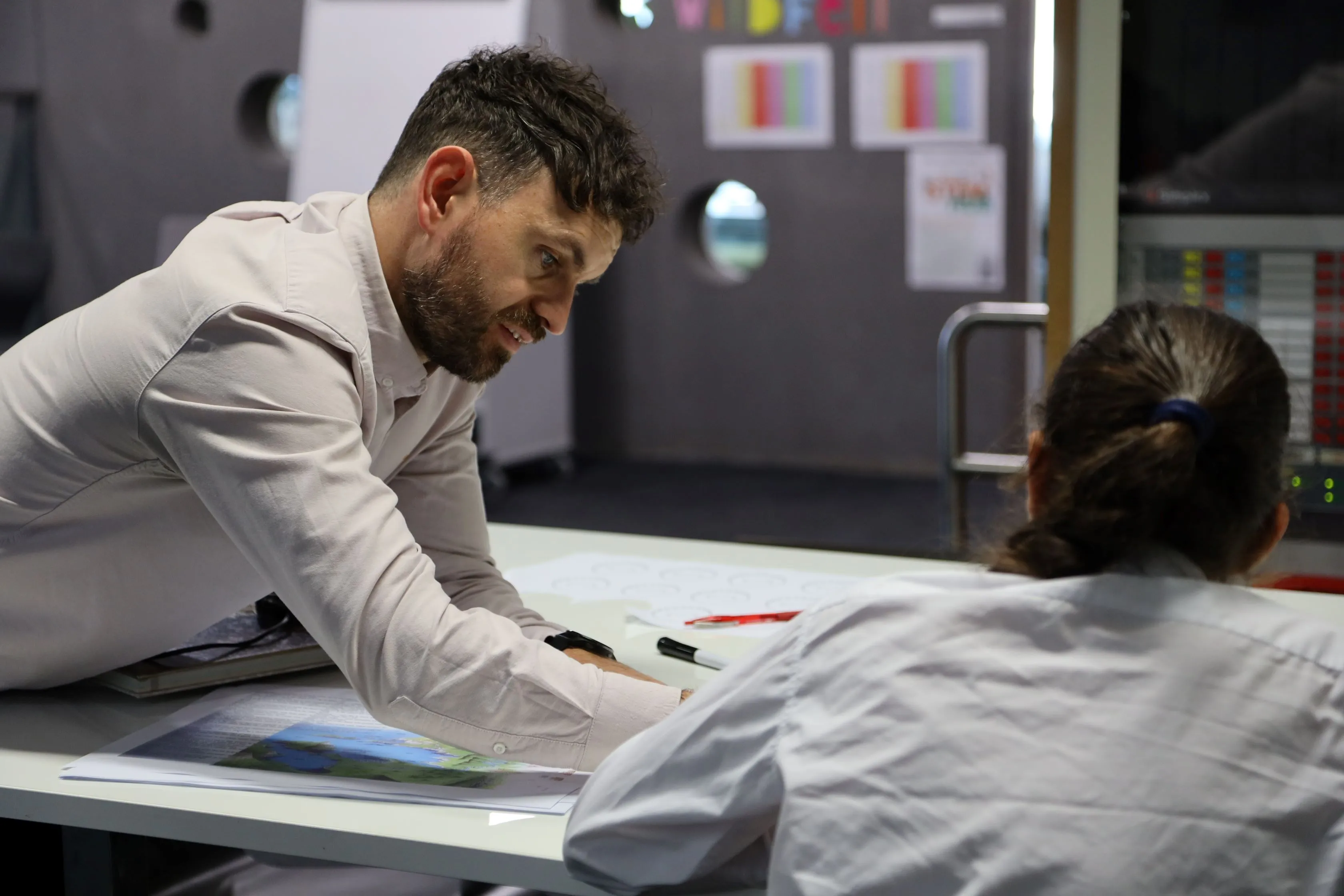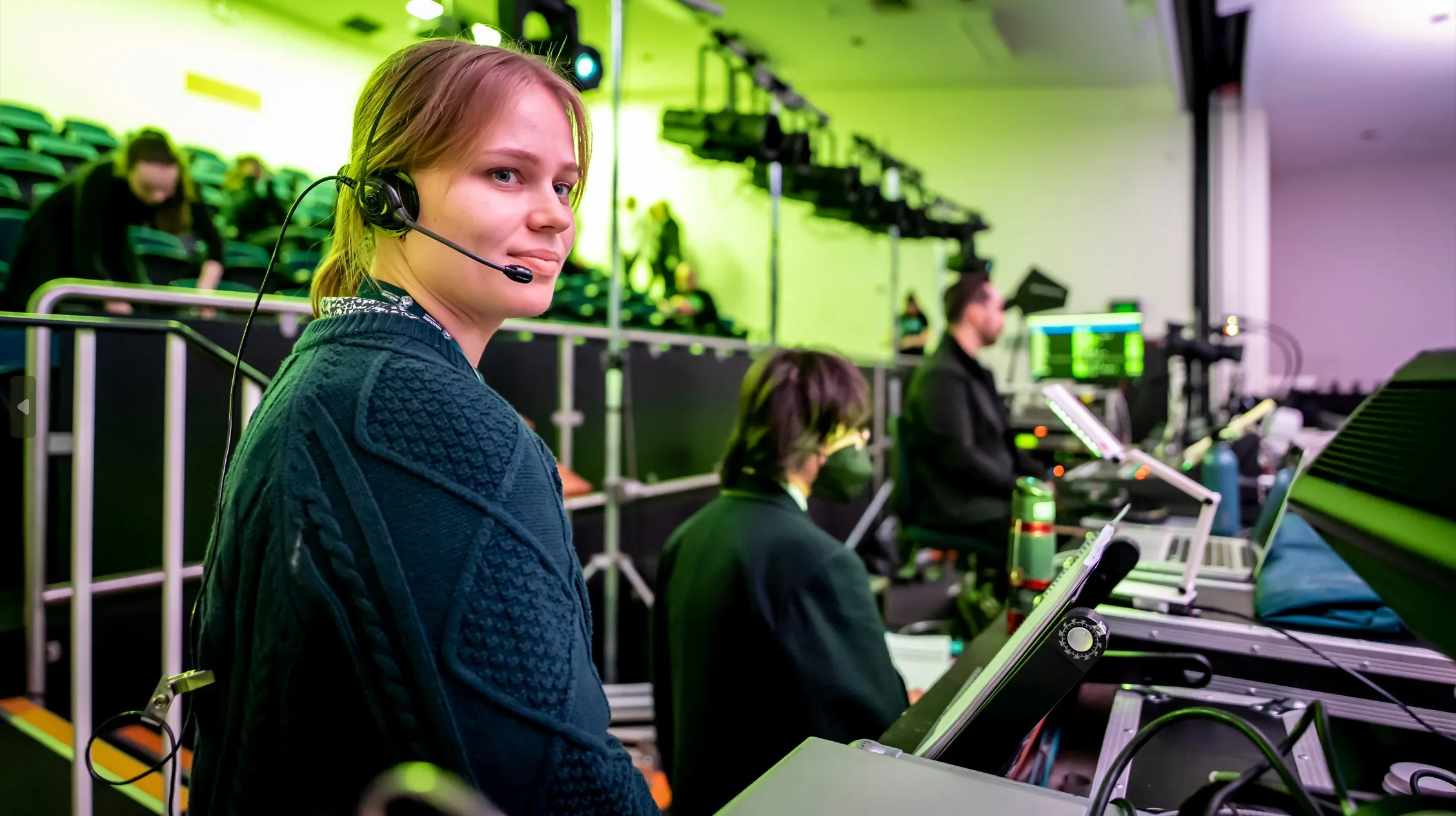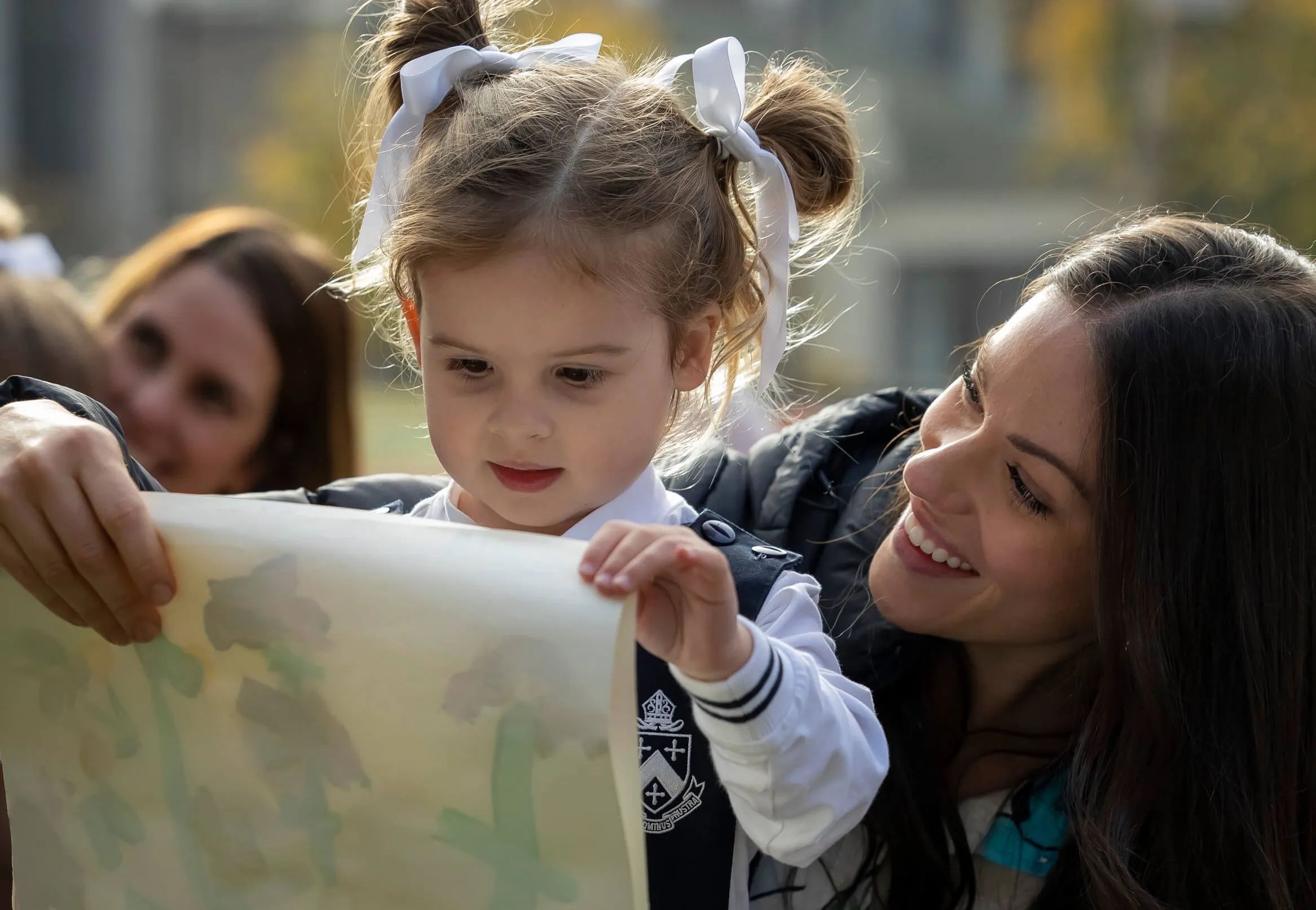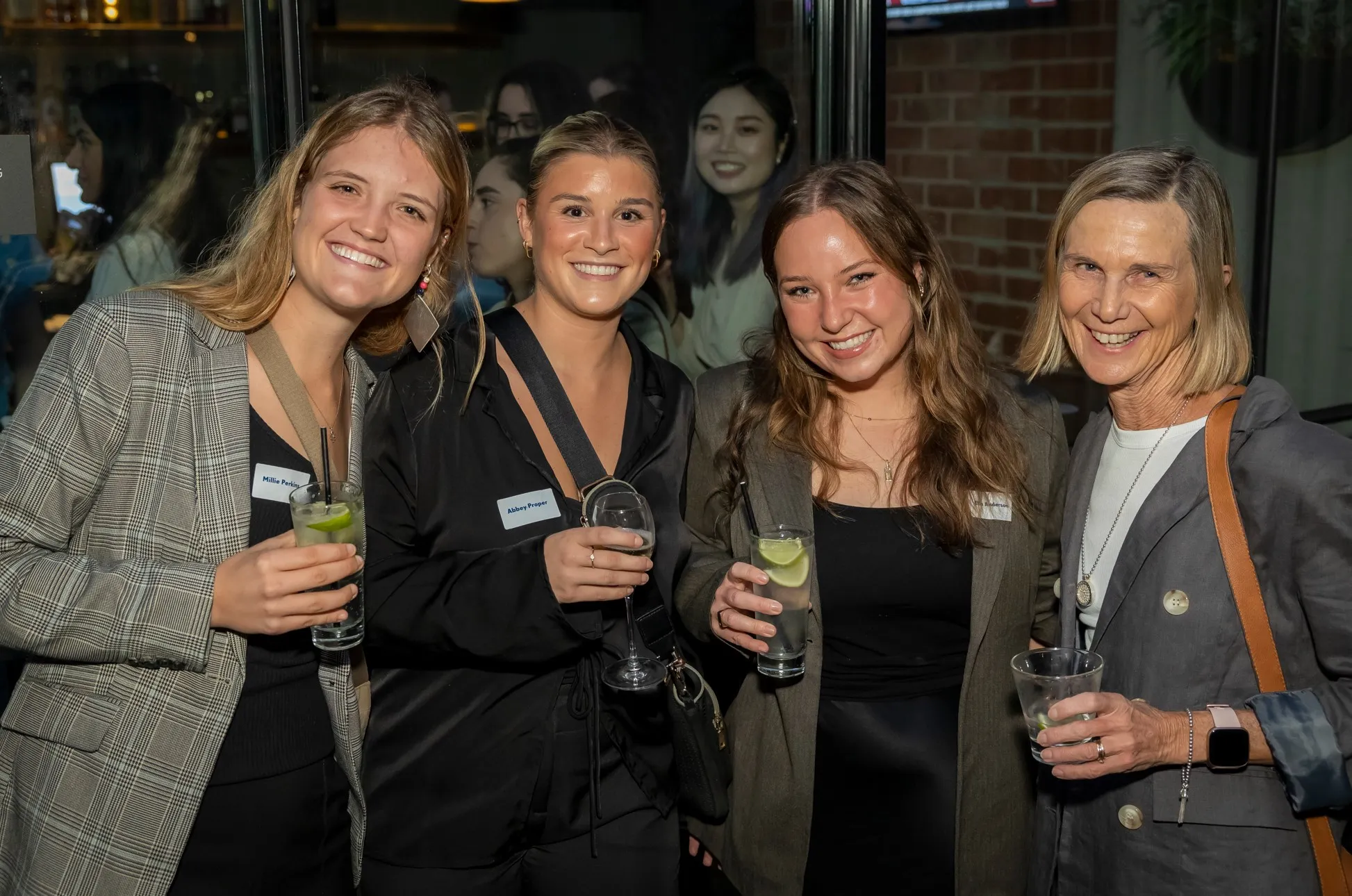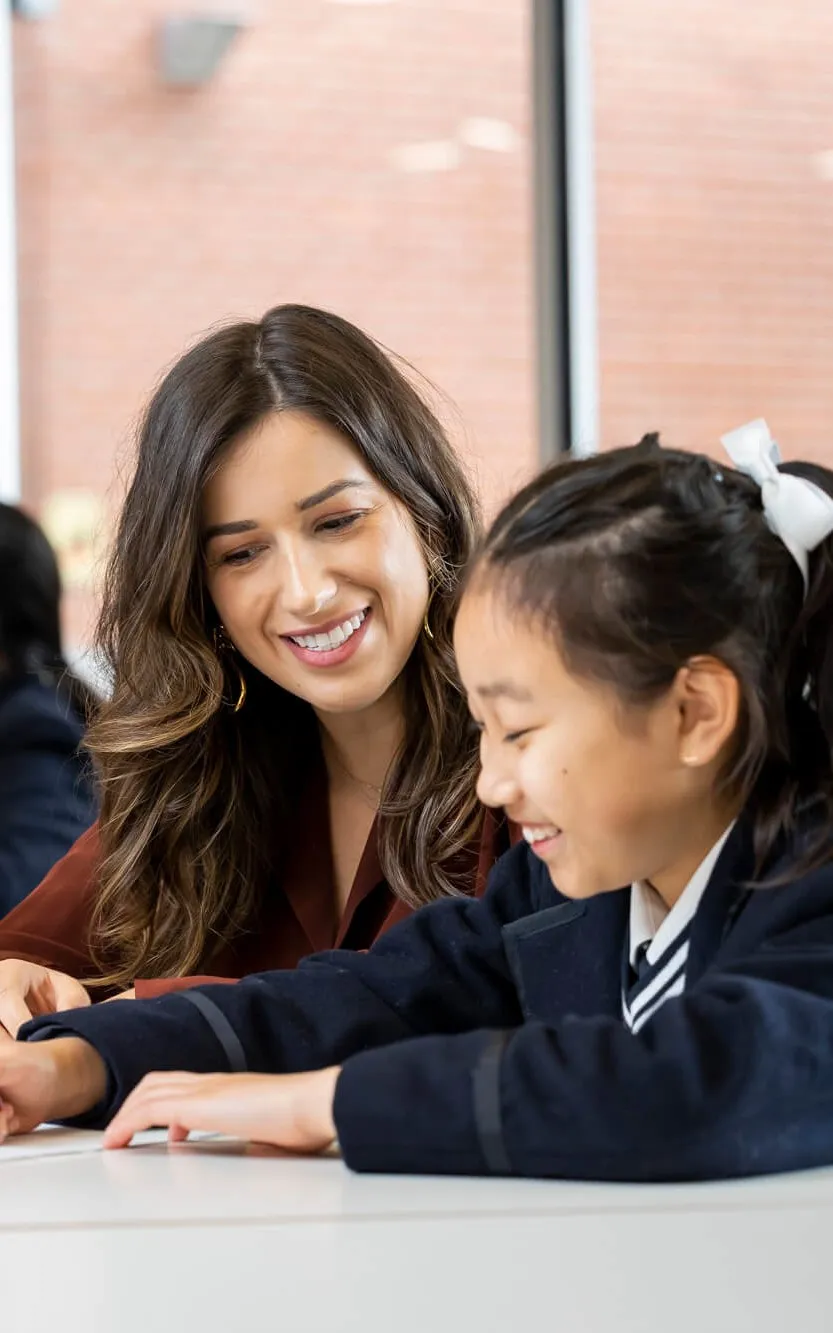

MIDDLE YEARS TEACHER ALEXSANDRA BURNS WITH A YEAR 5 STUDENT.


MIDDLE YEARS TEACHER ALEXSANDRA BURNS WITH A YEAR 5 STUDENT.
The Blueprint for Academic Success
What does it mean to truly learn? Rather than regurgitating a textbook onto an exam paper, to ‘learn’ at MGGS means to ‘think’ – to think about the world through a critical and curious lens now and long after your final school days.

In a dynamic and unpredictable world, where technology and the environment threaten to overwhelm us, it is fundamental that our Grammarians are equipped with the knowledge, skills and confidence needed outside the red wall brick walls of our School to thrive.
As a leading ‘thinking school’, Melbourne Girls Grammar’s expertise in girls’ education has allowed us to cultivate academic excellence and lay the foundations for lifelong learning. Throughout the School’s 131 years, our educators have continued to observe changes in student learning, the environment, and the world more broadly, allowing us to craft an evolved and relevant curriculum. We've sought innovative ways to design our curriculum and provide an inclusive, progressive educational experience.
"It is through our Pedagogical Principles that MGGS places innovation, academic rigour, and evidence-based pedagogy at the heart of our practice. It enables us to teach our students ‘to think’ and navigate the challenges of the ‘real world’ – their world."
- Ashley Pratt, Executive Director, Curriculum, Pedagogy and Innovation
In a dynamic and unpredictable world, where technology and the environment threaten to overwhelm us, it is fundamental that our Grammarians are equipped with the knowledge, skills and confidence needed outside the red wall brick walls of our School to thrive.
As a leading ‘thinking school’, Melbourne Girls Grammar’s expertise in girls’ education has allowed us to cultivate academic excellence and lay the foundations for lifelong learning. Throughout the School’s 131 years, our educators have continued to observe changes in student learning, the environment, and the world more broadly, allowing us to craft an evolved and relevant curriculum. We've sought innovative ways to design our curriculum and provide an inclusive, progressive educational experience.
"It is through our Pedagogical Principles that MGGS places innovation, academic rigour, and evidence-based pedagogy at the heart of our practice. It enables us to teach our students ‘to think’ and navigate the challenges of the ‘real world’ – their world."
- Ashley Pratt, Executive Director, Curriculum, Pedagogy and Innovation
In a dynamic and unpredictable world, where technology and the environment threaten to overwhelm us, it is fundamental that our Grammarians are equipped with the knowledge, skills and confidence needed outside the red wall brick walls of our School to thrive.
As a leading ‘thinking school’, Melbourne Girls Grammar’s expertise in girls’ education has allowed us to cultivate academic excellence and lay the foundations for lifelong learning. Throughout the School’s 131 years, our educators have continued to observe changes in student learning, the environment, and the world more broadly, allowing us to craft an evolved and relevant curriculum. We've sought innovative ways to design our curriculum and provide an inclusive, progressive educational experience.
"It is through our Pedagogical Principles that MGGS places innovation, academic rigour, and evidence-based pedagogy at the heart of our practice. It enables us to teach our students ‘to think’ and navigate the challenges of the ‘real world’ – their world."
- Ashley Pratt, Executive Director, Curriculum, Pedagogy and Innovation
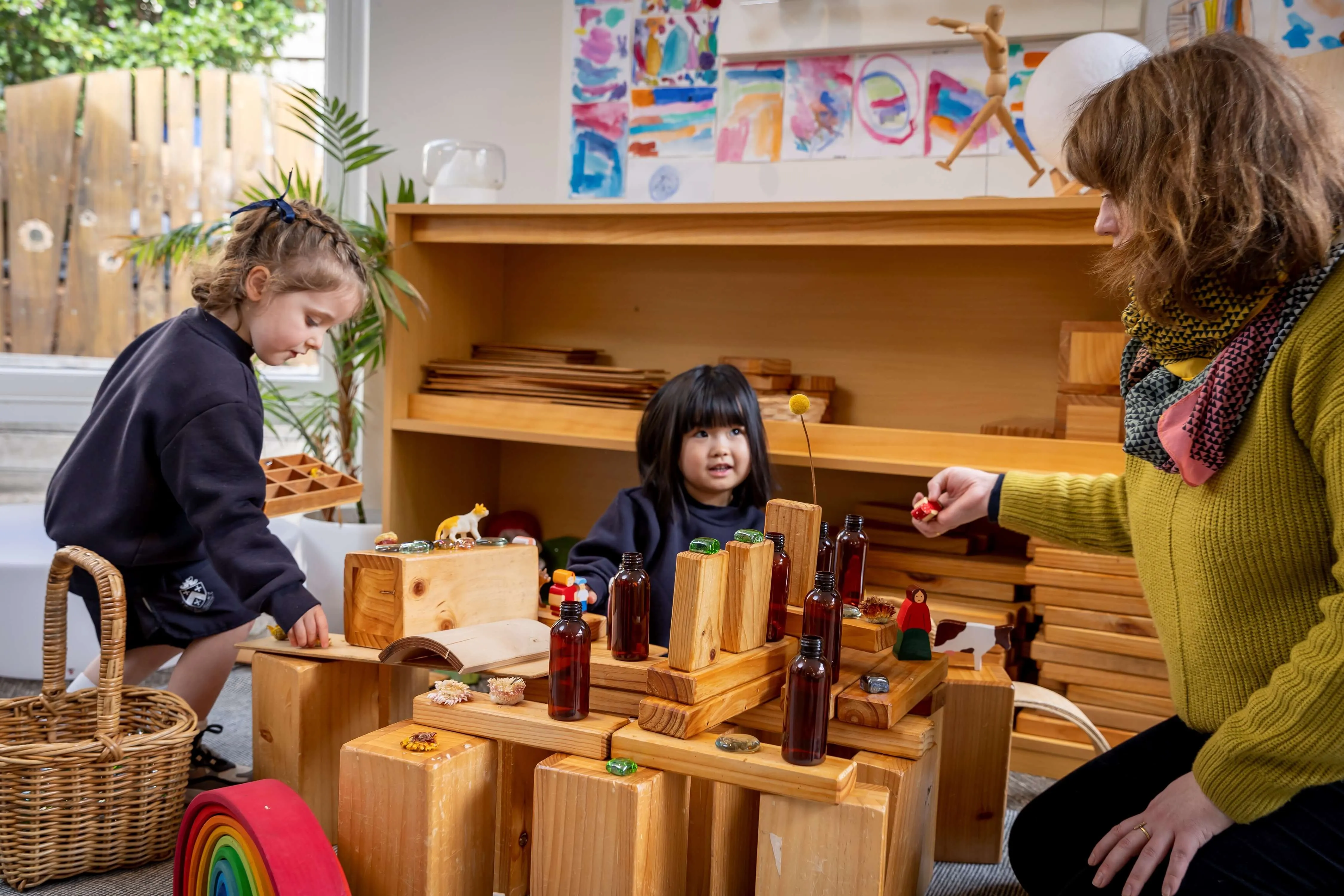

Our ELC learning studio.



Our ELC learning studio.
The foundations for lifelong learning are established early at MGGS. In our ELC, our educators engage our youngest Grammarians in stimulating classroom environments (inspired by the Reggio Emilia philosophy), encouraging them to be the ‘architects’ of their learning. Their curiosity is nurtured through the stimuli of their immediate surroundings, and learning curated through provocations and the conversations and activities that follow. Their learning is contextualised, relevant and fun.
They learn to develop confidence, how to communicate their ideas, and how to focus. They are uninhibited by gender stereotypes and are motivated by their sense of accomplishment; encouraged by their teachers they take on new challenges that will stretch them intellectually and build academic buoyancy. This is the blueprint for future academic success.
The foundations for lifelong learning are established early at MGGS. In our ELC, our educators engage our youngest Grammarians in stimulating classroom environments (inspired by the Reggio Emilia philosophy), encouraging them to be the ‘architects’ of their learning. Their curiosity is nurtured through the stimuli of their immediate surroundings, and learning curated through provocations and the conversations and activities that follow. Their learning is contextualised, relevant and fun.
They learn to develop confidence, how to communicate their ideas, and how to focus. They are uninhibited by gender stereotypes and are motivated by their sense of accomplishment; encouraged by their teachers they take on new challenges that will stretch them intellectually and build academic buoyancy. This is the blueprint for future academic success.
The foundations for lifelong learning are established early at MGGS. In our ELC, our educators engage our youngest Grammarians in stimulating classroom environments (inspired by the Reggio Emilia philosophy), encouraging them to be the ‘architects’ of their learning. Their curiosity is nurtured through the stimuli of their immediate surroundings, and learning curated through provocations and the conversations and activities that follow. Their learning is contextualised, relevant and fun.
They learn to develop confidence, how to communicate their ideas, and how to focus. They are uninhibited by gender stereotypes and are motivated by their sense of accomplishment; encouraged by their teachers they take on new challenges that will stretch them intellectually and build academic buoyancy. This is the blueprint for future academic success.
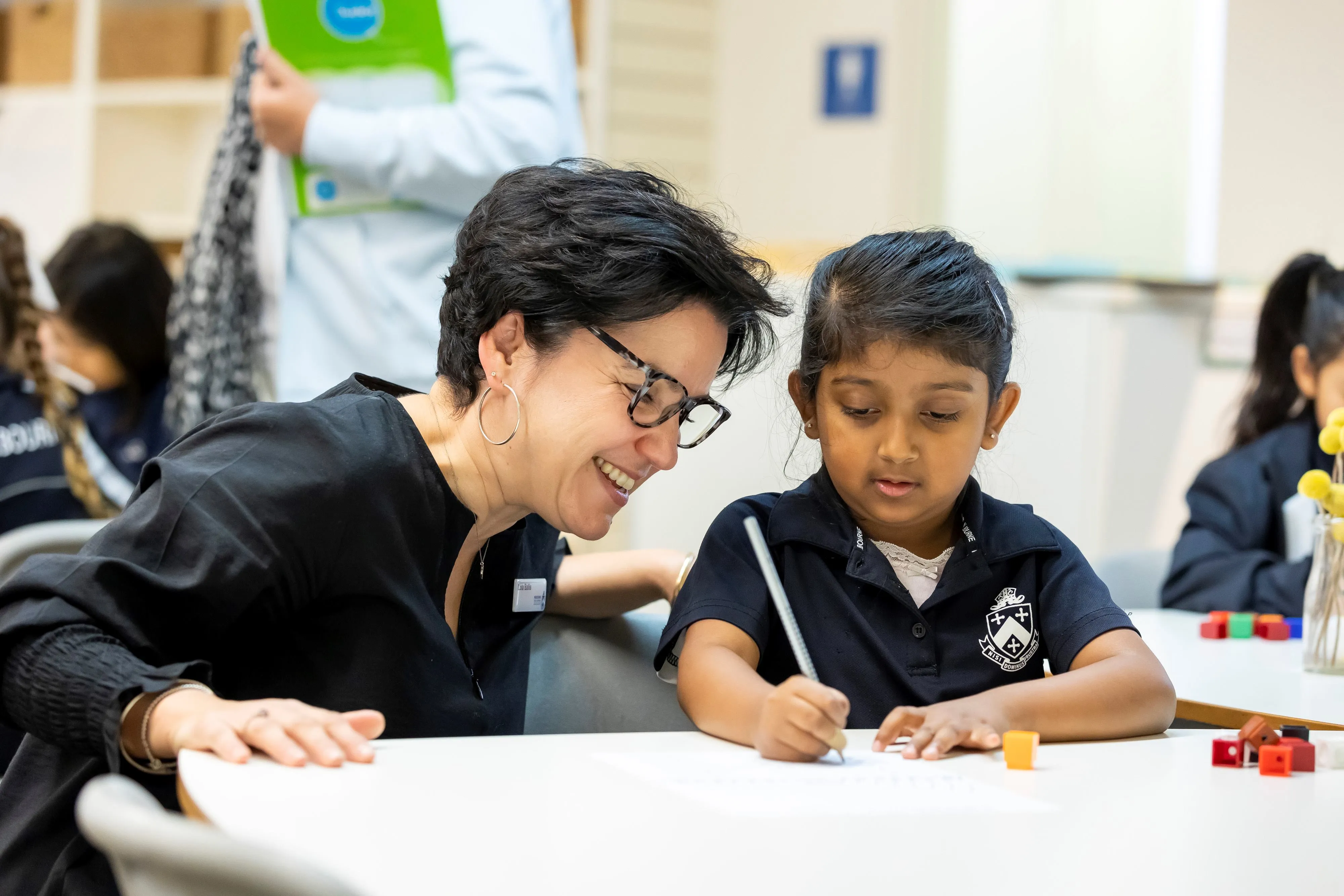

A teacher helps a Year 1 student with a numeracy activity.



A teacher helps a Year 1 student with a numeracy activity.
By the time students move into our Junior Years program at Prep, their teachers already have an understanding of each child’s strengths and interests. This seamless transition to school allows Morris Hall educators to provide appropriate opportunities for academic resilience and build excitement, all the while shaping what we hope will be an insatiable appetite for learning.
But this is no happy accident. Rather, it comes from our educational framework where we embrace the concept of blended subject matter knowledge and pedagogical expertise. This empowers our staff to impart knowledge to students in an engaging and meaningful way. Our strategy fosters a positive learning environment, enabling students to connect with the content, while how they are taught supports their academic growth and ability to retain information and skills.
Our teachers role model a hunger for knowledge by remaining critical and curious when engaging with the latest news, evidence-based research, and technology. Through cross-disciplinary collaboration and conversation, we pool our knowledge, challenge ideas, and compare ways of thinking to ignite continuous learning for our staff and, in turn, our students. Educators are guided by MGGS’s ‘Thinking School’ framework, which has been thoughtfully designed to reflect proven pedagogical principles including the concepts of ‘Pedagogical Content Knowledge’ (PCK)1 and ‘Flow’2.
We can all remember those classes where time seemed to stand still. Where we were immersed in what we were doing and felt a sense of accomplishment when the bell rang if not a slight annoyance that we needed to move onto the next class. Where did the time go?
By the time students move into our Junior Years program at Prep, their teachers already have an understanding of each child’s strengths and interests. This seamless transition to school allows Morris Hall educators to provide appropriate opportunities for academic resilience and build excitement, all the while shaping what we hope will be an insatiable appetite for learning.
But this is no happy accident. Rather, it comes from our educational framework where we embrace the concept of blended subject matter knowledge and pedagogical expertise. This empowers our staff to impart knowledge to students in an engaging and meaningful way. Our strategy fosters a positive learning environment, enabling students to connect with the content, while how they are taught supports their academic growth and ability to retain information and skills.
Our teachers role model a hunger for knowledge by remaining critical and curious when engaging with the latest news, evidence-based research, and technology. Through cross-disciplinary collaboration and conversation, we pool our knowledge, challenge ideas, and compare ways of thinking to ignite continuous learning for our staff and, in turn, our students. Educators are guided by MGGS’s ‘Thinking School’ framework, which has been thoughtfully designed to reflect proven pedagogical principles including the concepts of ‘Pedagogical Content Knowledge’ (PCK)1 and ‘Flow’2.
We can all remember those classes where time seemed to stand still. Where we were immersed in what we were doing and felt a sense of accomplishment when the bell rang if not a slight annoyance that we needed to move onto the next class. Where did the time go?
By the time students move into our Junior Years program at Prep, their teachers already have an understanding of each child’s strengths and interests. This seamless transition to school allows Morris Hall educators to provide appropriate opportunities for academic resilience and build excitement, all the while shaping what we hope will be an insatiable appetite for learning.
But this is no happy accident. Rather, it comes from our educational framework where we embrace the concept of blended subject matter knowledge and pedagogical expertise. This empowers our staff to impart knowledge to students in an engaging and meaningful way. Our strategy fosters a positive learning environment, enabling students to connect with the content, while how they are taught supports their academic growth and ability to retain information and skills.
Our teachers role model a hunger for knowledge by remaining critical and curious when engaging with the latest news, evidence-based research, and technology. Through cross-disciplinary collaboration and conversation, we pool our knowledge, challenge ideas, and compare ways of thinking to ignite continuous learning for our staff and, in turn, our students. Educators are guided by MGGS’s ‘Thinking School’ framework, which has been thoughtfully designed to reflect proven pedagogical principles including the concepts of ‘Pedagogical Content Knowledge’ (PCK)1 and ‘Flow’2.
We can all remember those classes where time seemed to stand still. Where we were immersed in what we were doing and felt a sense of accomplishment when the bell rang if not a slight annoyance that we needed to move onto the next class. Where did the time go?


Our Year 9 students learning outside the classroom during their Arnhem Land immersion journey.



Our Year 9 students learning outside the classroom during their Arnhem Land immersion journey.


Our Year 9 students learning outside the classroom during their Arnhem Land immersion journey.
The ‘Thinking School’ Pedagogical Principles underpin our craft; each lesson is carefully planned to provide our Grammarians with opportunities for active engagement and deep thinking, enabling them to apply their understanding across a wide variety of contexts. Staff collaborate across teams to tap into diverse strengths and ensure a consistent educational quality across classes and disciplines. Assessment and evidence-based feedback allow for review and identification of how to improve, support or enhance learning.
As students progress into the Middle and Senior Years, they better understand their personal strengths and areas that they love. They are provided opportunities to explore a diverse range of topics and subjects as part of the curriculum, all providing skills and challenges that stretch and extend their thinking and improve their levels of engagement and/or specific skills. This can be seen in the trialing of three languages and the introduction of Indigenous culture in Year 5 so they are empowered to select what they are most interested in for Years 6-8.
From Year 9 (Senior Years) our Grammarians are provided opportunities to expand their learning into even more elected areas choosing additional languages if desired that add depth of knowledge, or from a diverse range of studies that provide breadth. With increased maturity they are able to take on further knowledge and cultural understanding that extends their perception of the world and their place within it.
The ‘Thinking School’ Pedagogical Principles underpin our craft; each lesson is carefully planned to provide our Grammarians with opportunities for active engagement and deep thinking, enabling them to apply their understanding across a wide variety of contexts. Staff collaborate across teams to tap into diverse strengths and ensure a consistent educational quality across classes and disciplines. Assessment and evidence-based feedback allow for review and identification of how to improve, support or enhance learning.
As students progress into the Middle and Senior Years, they better understand their personal strengths and areas that they love. They are provided opportunities to explore a diverse range of topics and subjects as part of the curriculum, all providing skills and challenges that stretch and extend their thinking and improve their levels of engagement and/or specific skills. This can be seen in the trialing of three languages and the introduction of Indigenous culture in Year 5 so they are empowered to select what they are most interested in for Years 6-8.
From Year 9 (Senior Years) our Grammarians are provided opportunities to expand their learning into even more elected areas choosing additional languages if desired that add depth of knowledge, or from a diverse range of studies that provide breadth. With increased maturity they are able to take on further knowledge and cultural understanding that extends their perception of the world and their place within it.

"Our Grammarians become critical thinkers, problem solvers, and lifelong learners who are not only prepared for academic success on an individual level but also for personal and professional success in the future."
- Ashley Pratt, Executive Director, Curriculum, Pedagogy and Innovation
We aim to provide our students with the motivation, agency and confidence to take on new challenges, adapt to new situations, and continually learn and grow. We know that they are also more likely to be engaged, committed, and passionate learners who take ownership of their learning and strive to meet their learning goals.
The application of innovation into our curriculum design at Melbourne Girls Grammar, grounded in our Pedagogical Principles, not only serves to improve our students' academic outcomes but also prepares them to become active, informed, and responsible citizens equipped with the skills and knowledge to thrive in a constantly changing world.
"Our Grammarians become critical thinkers, problem solvers, and lifelong learners who are not only prepared for academic success on an individual level but also for personal and professional success in the future."
- Ashley Pratt, Executive Director, Curriculum, Pedagogy and Innovation
We aim to provide our students with the motivation, agency and confidence to take on new challenges, adapt to new situations, and continually learn and grow. We know that they are also more likely to be engaged, committed, and passionate learners who take ownership of their learning and strive to meet their learning goals.
The application of innovation into our curriculum design at Melbourne Girls Grammar, grounded in our Pedagogical Principles, not only serves to improve our students' academic outcomes but also prepares them to become active, informed, and responsible citizens equipped with the skills and knowledge to thrive in a constantly changing world.
"Our Grammarians become critical thinkers, problem solvers, and lifelong learners who are not only prepared for academic success on an individual level but also for personal and professional success in the future."
- Ashley Pratt, Executive Director, Curriculum, Pedagogy and Innovation
We aim to provide our students with the motivation, agency and confidence to take on new challenges, adapt to new situations, and continually learn and grow. We know that they are also more likely to be engaged, committed, and passionate learners who take ownership of their learning and strive to meet their learning goals.
The application of innovation into our curriculum design at Melbourne Girls Grammar, grounded in our Pedagogical Principles, not only serves to improve our students' academic outcomes but also prepares them to become active, informed, and responsible citizens equipped with the skills and knowledge to thrive in a constantly changing world.
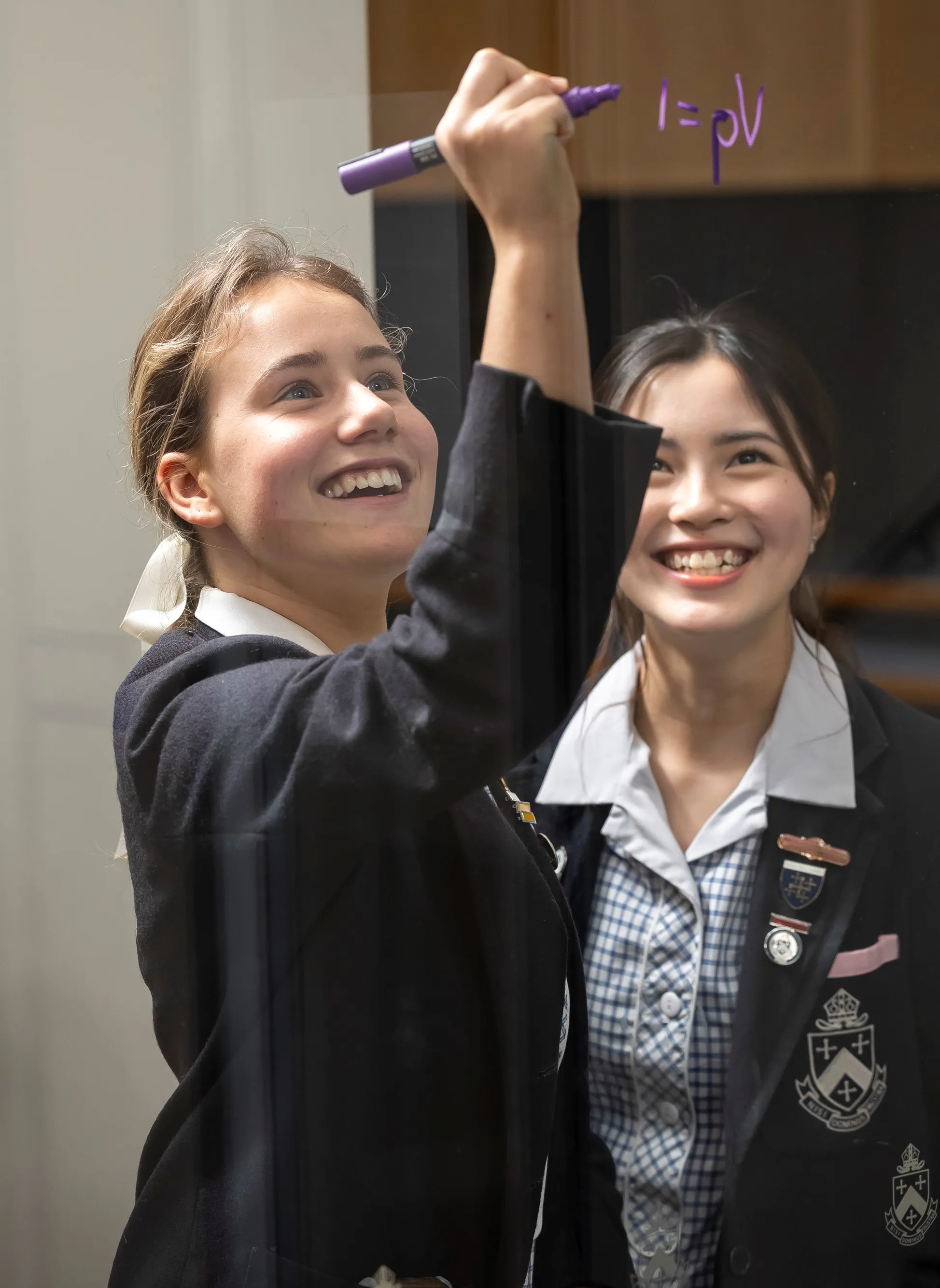

Who said learning isn't fun?



Who said learning isn't fun?


Who said learning isn't fun?
Fostering a lifelong love of learning is what we do best at Melbourne Girls Grammar. The outcomes of our approach are not just about the 'what' – the knowledge and skills gained – but also about the 'why' and the 'how' – fostering a love of learning, developing critical thinking skills, and nurturing resilience. It is the full package we believe that is essential for our student's future success. With these Pedagogical Principles as our blueprint, our Grammarians are equipped to be creative and curious ‘thinkers’, poised for academic success and ready to tackle the challenges prevalent in an ever-changing world.
1 Schulman 1997
PCK is the knowledge that teachers develop over time and through experience. It looks at teaching in a way that caters for respective understanding levels, taking into account the preconceptions and misconceptions of individual students. This is why observing learning habits from early education onwards is essential.
2 Flow is the term coined by Csikszentmihalyi, 1997
Flow refers to a heightened focus and immersion in classroom activities. In other words, creating an environment in which students feel in control, are less self-conscious and are highly motivated; they are so invested in their lessons that they lose track of time. This results in increased productivity, creativity and, most importantly, a love of learning.
Fostering a lifelong love of learning is what we do best at Melbourne Girls Grammar. The outcomes of our approach are not just about the 'what' – the knowledge and skills gained – but also about the 'why' and the 'how' – fostering a love of learning, developing critical thinking skills, and nurturing resilience. It is the full package we believe that is essential for our student's future success. With these Pedagogical Principles as our blueprint, our Grammarians are equipped to be creative and curious ‘thinkers’, poised for academic success and ready to tackle the challenges prevalent in an ever-changing world.
1 Schulman 1997
PCK is the knowledge that teachers develop over time and through experience. It looks at teaching in a way that caters for respective understanding levels, taking into account the preconceptions and misconceptions of individual students. This is why observing learning habits from early education onwards is essential.
2 Flow is the term coined by Csikszentmihalyi, 1997
Flow refers to a heightened focus and immersion in classroom activities. In other words, creating an environment in which students feel in control, are less self-conscious and are highly motivated; they are so invested in their lessons that they lose track of time. This results in increased productivity, creativity and, most importantly, a love of learning.
Fostering a lifelong love of learning is what we do best at Melbourne Girls Grammar. The outcomes of our approach are not just about the 'what' – the knowledge and skills gained – but also about the 'why' and the 'how' – fostering a love of learning, developing critical thinking skills, and nurturing resilience. It is the full package we believe that is essential for our student's future success. With these Pedagogical Principles as our blueprint, our Grammarians are equipped to be creative and curious ‘thinkers’, poised for academic success and ready to tackle the challenges prevalent in an ever-changing world.
1 Schulman 1997
PCK is the knowledge that teachers develop over time and through experience. It looks at teaching in a way that caters for respective understanding levels, taking into account the preconceptions and misconceptions of individual students. This is why observing learning habits from early education onwards is essential.
2 Flow is the term coined by Csikszentmihalyi, 1997
Flow refers to a heightened focus and immersion in classroom activities. In other words, creating an environment in which students feel in control, are less self-conscious and are highly motivated; they are so invested in their lessons that they lose track of time. This results in increased productivity, creativity and, most importantly, a love of learning.





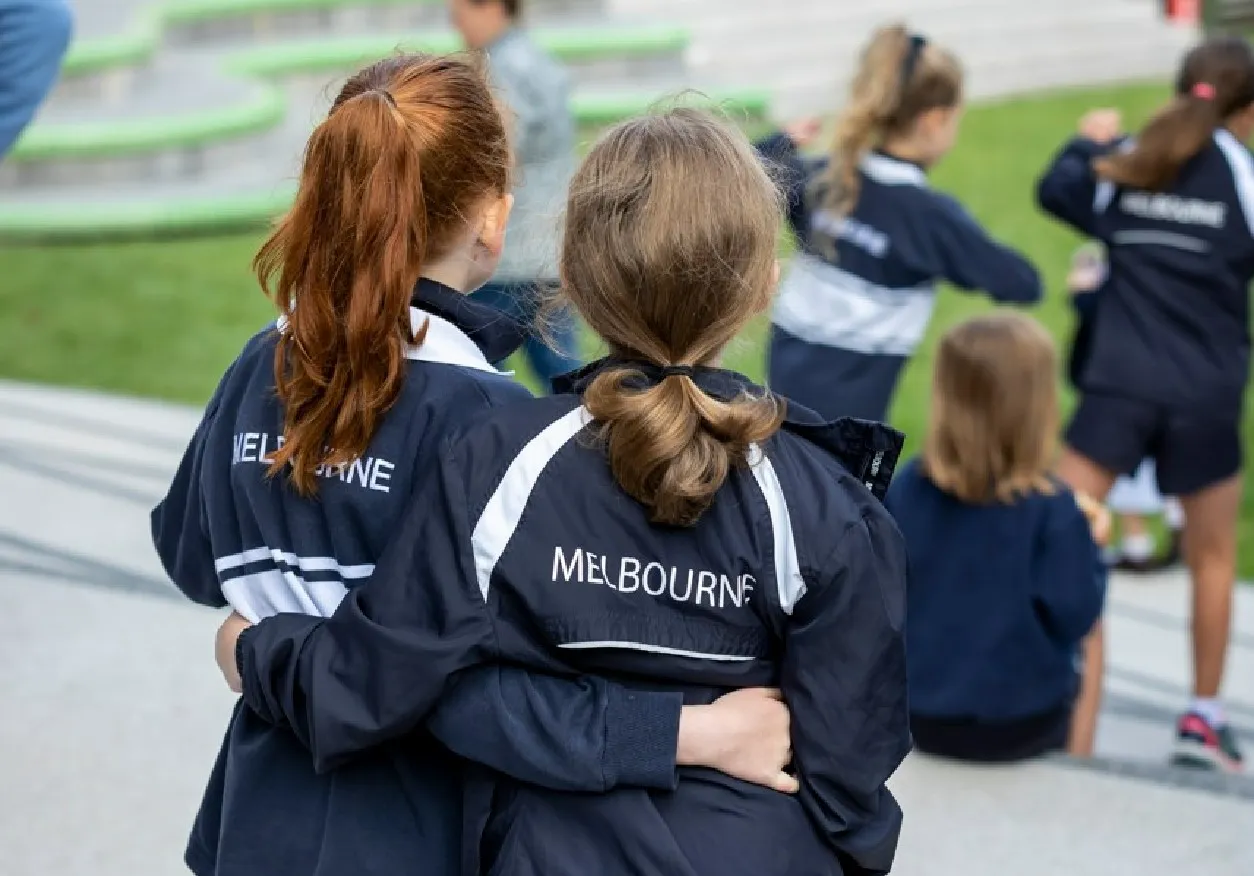

.webp)
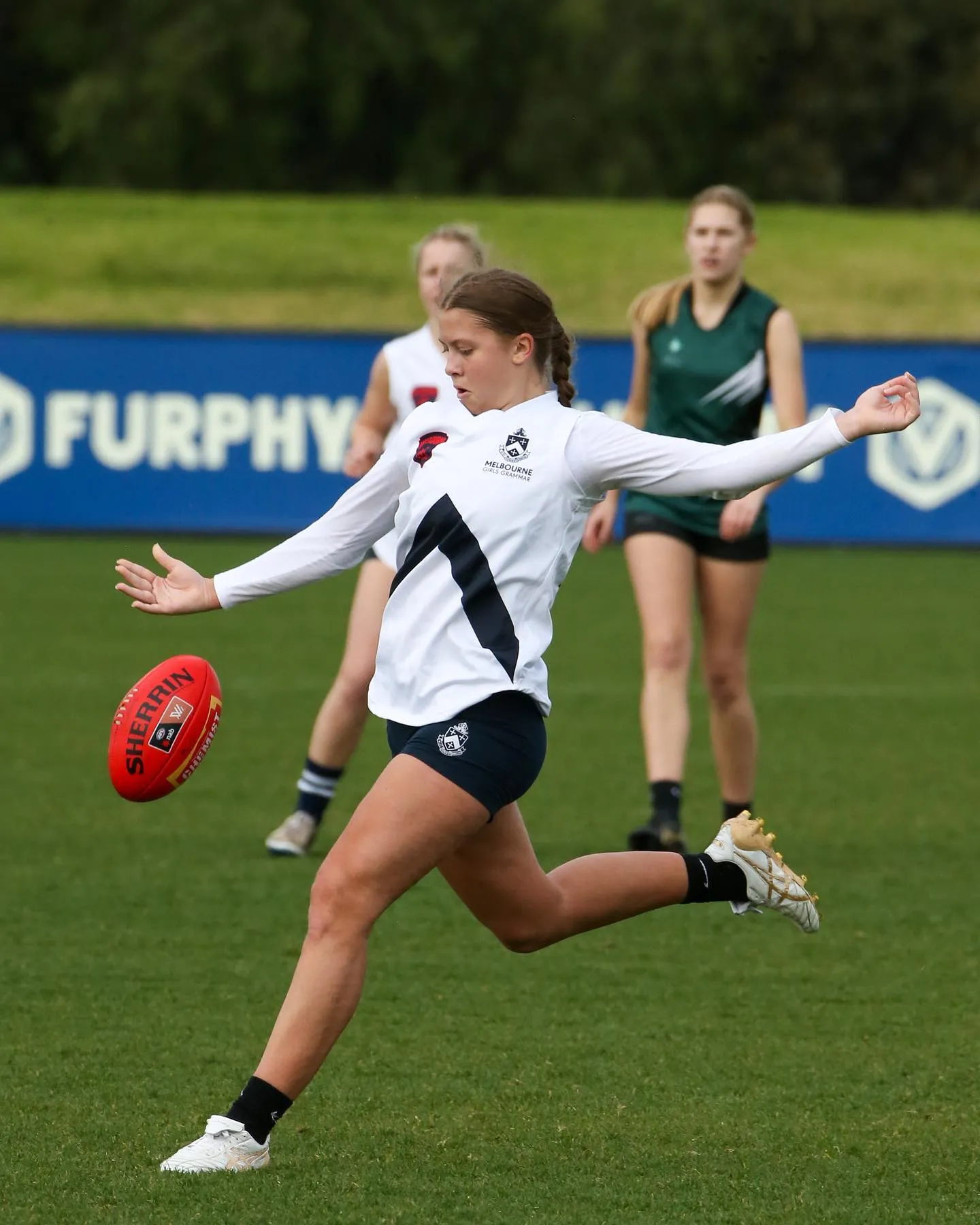
.webp)

